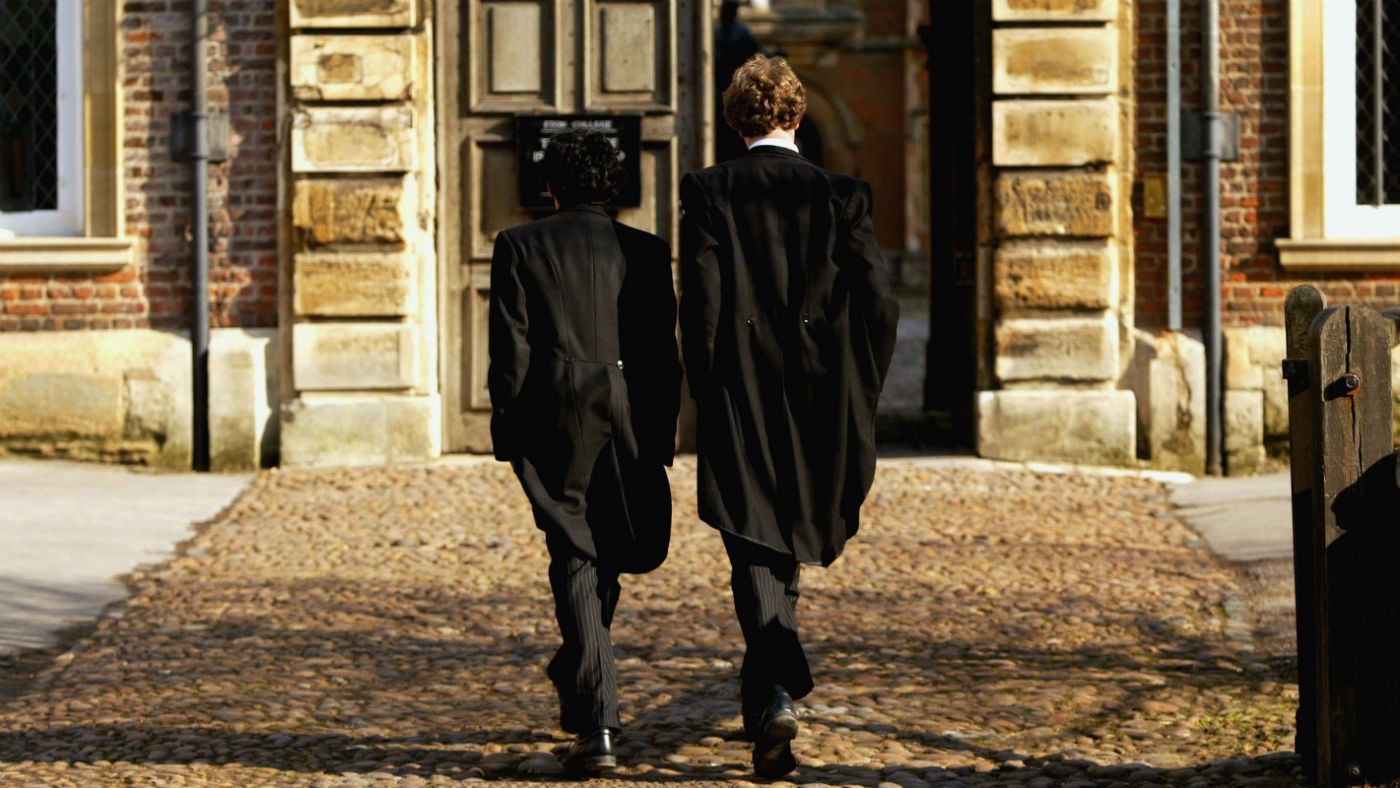What is the class ceiling?
Children of doctors and lawyers up to 24 times more likely to get top jobs than those from working-class backgrounds

A free daily email with the biggest news stories of the day – and the best features from TheWeek.com
You are now subscribed
Your newsletter sign-up was successful
Children of doctors and lawyers are up to 24 times more likely to get in to the same profession as their parents compared to their less “socially privileged” peers, a new book has suggested.
The Class Ceiling: Why it Pays to be Privileged by Sam Friedman from the London School of Economics (LSE), and Daniel Laurison indicates traditionally elite jobs such as medicine, law and media are among the most “inherited” careers in the UK.
According to The Times, the book “explores the invisible ‘helping hands’ that allow the well-connected middle classes to retain their stranglehold on the elite professions and explores why people from working-class backgrounds are less likely to reach top jobs even after securing first-class degrees from top universities”.
The Week
Escape your echo chamber. Get the facts behind the news, plus analysis from multiple perspectives.

Sign up for The Week's Free Newsletters
From our morning news briefing to a weekly Good News Newsletter, get the best of The Week delivered directly to your inbox.
From our morning news briefing to a weekly Good News Newsletter, get the best of The Week delivered directly to your inbox.
It suggests that that class pay gap is as big an issue as the gender pay gap, with people from working class backgrounds in elite roles earning on average £6,400 a year less than peers from more privileged upbringings.
“This is partly a question of culture – parental expectation combined with insider knowledge,” says Iain Macwhirter in The Herald. Yet “it is not just about culture and manners – about social barriers, and about ‘talking proper’” he adds. “The reality is that since the 1980s Britain has become deeply socially divided through relentless and accelerating inequalities of wealth and power.”
iNews says evidence of the so-called ‘class ceiling’ “comes amid rising debate over the existence of private schools in the UK”.
In an editorial in The Guardian, historian David Kynaston and economist Francis Green set out their argument that paid-for education was the root of inequality in British society.
A free daily email with the biggest news stories of the day – and the best features from TheWeek.com
“The existence in Britain of a flourishing private-school sector not only limits the life chances of those who attend state schools but also damages society at large, and it should be possible to have a sustained and fully inclusive national conversation about the subject,” they write.
“For far too long, public policy has been based on a casual assumption that economic inequality is not a problem so long as there is equality of opportunity. That’s it’s just about hard work, or intelligence. But it isn’t, and it never has been,” says Macwhirter.
-
 Bonfire of the Murdochs: an ‘utterly gripping’ book
Bonfire of the Murdochs: an ‘utterly gripping’ bookThe Week Recommends Gabriel Sherman examines Rupert Murdoch’s ‘war of succession’ over his media empire
-
 Gwen John: Strange Beauties – a ‘superb’ retrospective
Gwen John: Strange Beauties – a ‘superb’ retrospectiveThe Week Recommends ‘Daunting’ show at the National Museum Cardiff plunges viewers into the Welsh artist’s ‘spiritual, austere existence’
-
 Should the EU and UK join Trump’s board of peace?
Should the EU and UK join Trump’s board of peace?Today's Big Question After rushing to praise the initiative European leaders are now alarmed
-
 Labour shortages: the ‘most urgent problem’ facing the UK economy right now
Labour shortages: the ‘most urgent problem’ facing the UK economy right nowSpeed Read Britain is currently in the grip of an ‘employment crisis’
-
 Will the energy war hurt Europe more than Russia?
Will the energy war hurt Europe more than Russia?Speed Read European Commission proposes a total ban on Russian oil
-
 Will Elon Musk manage to take over Twitter?
Will Elon Musk manage to take over Twitter?Speed Read The world’s richest man has launched a hostile takeover bid worth $43bn
-
 Shoppers urged not to buy into dodgy Black Friday deals
Shoppers urged not to buy into dodgy Black Friday dealsSpeed Read Consumer watchdog says better prices can be had on most of the so-called bargain offers
-
 Ryanair: readying for departure from London
Ryanair: readying for departure from LondonSpeed Read Plans to delist Ryanair from the London Stock Exchange could spell ‘another blow’ to the ‘dwindling’ London market
-
 Out of fashion: Asos ‘curse’ has struck again
Out of fashion: Asos ‘curse’ has struck againSpeed Read Share price tumbles following the departure of CEO Nick Beighton
-
 Universal Music’s blockbuster listing: don’t stop me now…
Universal Music’s blockbuster listing: don’t stop me now…Speed Read Investors are betting heavily that the ‘boom in music streaming’, which has transformed Universal’s fortunes, ‘still has a long way to go’
-
 EasyJet/Wizz: battle for air supremacy
EasyJet/Wizz: battle for air supremacySpeed Read ‘Wizz’s cheeky takeover bid will have come as a blow to the corporate ego’